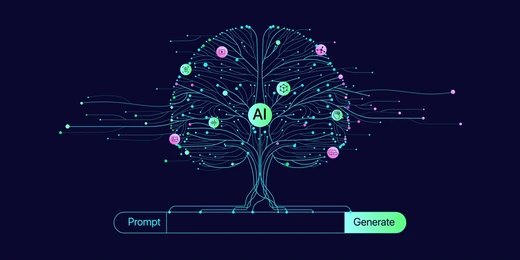
Brain Waves That Enhance Memory and Creativity
Scientists Unravel the Source of a Mysterious Brain Wave That Enhances Memory and Creativity
Unveiling the Enigma of Brain Waves
The human brain operates like a radio, with various channels represented by electrical signals and oscillations known as brain waves. Among these, the elusive theta waves have perplexed neuroscientists for years, as they occur during both wakefulness and sleep, hinting at their multifaceted functions. Understanding theta waves could unlock new possibilities for boosting memory and cognitive abilities, especially in conditions like Alzheimer’s disease, where memory decline is pronounced.

Unravelling the Source of Theta Waves: A Breakthrough Study
A study conducted by Dr. Arne Ekstrom from the University of Arizona delved into the origin of theta waves using a unique approach. The researchers recruited epilepsy patients with brain electrodes and examined their brain activity while imagining past routes and navigating a virtual mall. The findings suggested that theta waves are internally generated by the brain using memory.
An Ocean of Brain Waves: The Complex Landscape of Brain Oscillations
The brain operates at various electrical frequencies, each representing a distinct state of mind. Beta waves signify complete engagement, while alpha waves indicate relaxation. Theta waves stand out with their slower oscillation at 3 to 12 hertz per second. These waves often appear during daydreaming, meditation, or creative thinking and have been linked to memory and navigation functions.
Decoding the Role of Theta Waves: Memory and Navigation Nexus
Theta waves primarily manifest in the hippocampus—a brain region crucial for memory and navigation. Research on mice and rats indicates that theta waves support spatial navigation as the rodents explore complex mazes. Surprisingly, these waves also appear in humans when they memorize information or associate different concepts. Enhancing theta waves using brainwave entrainment devices has shown promising results in boosting memory performance.
The Study: Brain Waves in Action
Dr. Ekstrom’s team conducted a study involving epilepsy patients with brain electrodes. The volunteers navigated a virtual mall using an Xbox joystick and later mentally simulated the route without visuals. Brain wave analyses revealed that both navigation and memory tasks elicited theta waves, but memory tasks generated more potent and sustained waves. This suggests that theta waves play a critical role in memory processing.
Implications and Future Prospects: Enhancing Memory Through Theta Waves
Understanding the connection between theta waves and memory opens up possibilities for enhancing cognitive function in aging individuals and patients with dementia. Researchers are exploring various brain stimulation methods, including electrical and magnetic approaches, to harness theta waves for therapeutic purposes. Furthermore, this study contributes to the growing trend of using brain waves as a potential treatment avenue for challenging neurological disorders, offering hope for tackling conditions like Alzheimer’s and stroke.
Conclusion: Riding the Brain Waves to New Frontiers
The quest to comprehend the enigmatic theta waves has unveiled their significance in memory and creativity. Armed with this knowledge, researchers are poised to explore innovative methods to harness and enhance theta waves, potentially revolutionizing memory-related therapies. The study’s insights also fuel the ongoing wave of research exploring brain waves’ therapeutic potential for addressing complex neurological disorders, marking a promising step toward bettering brain health in the future.
Image Credit: Lucas Kapla on Unsplash














